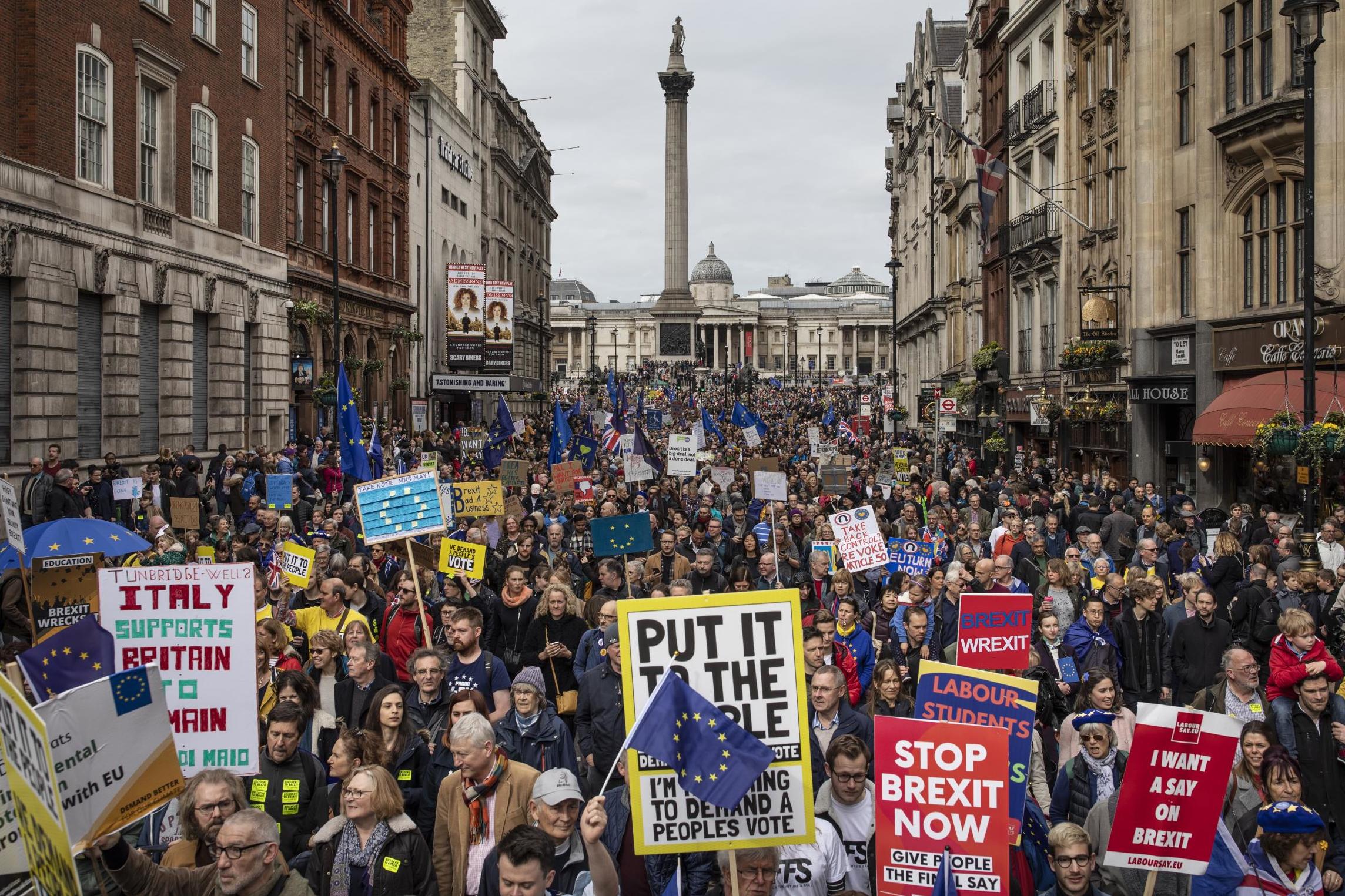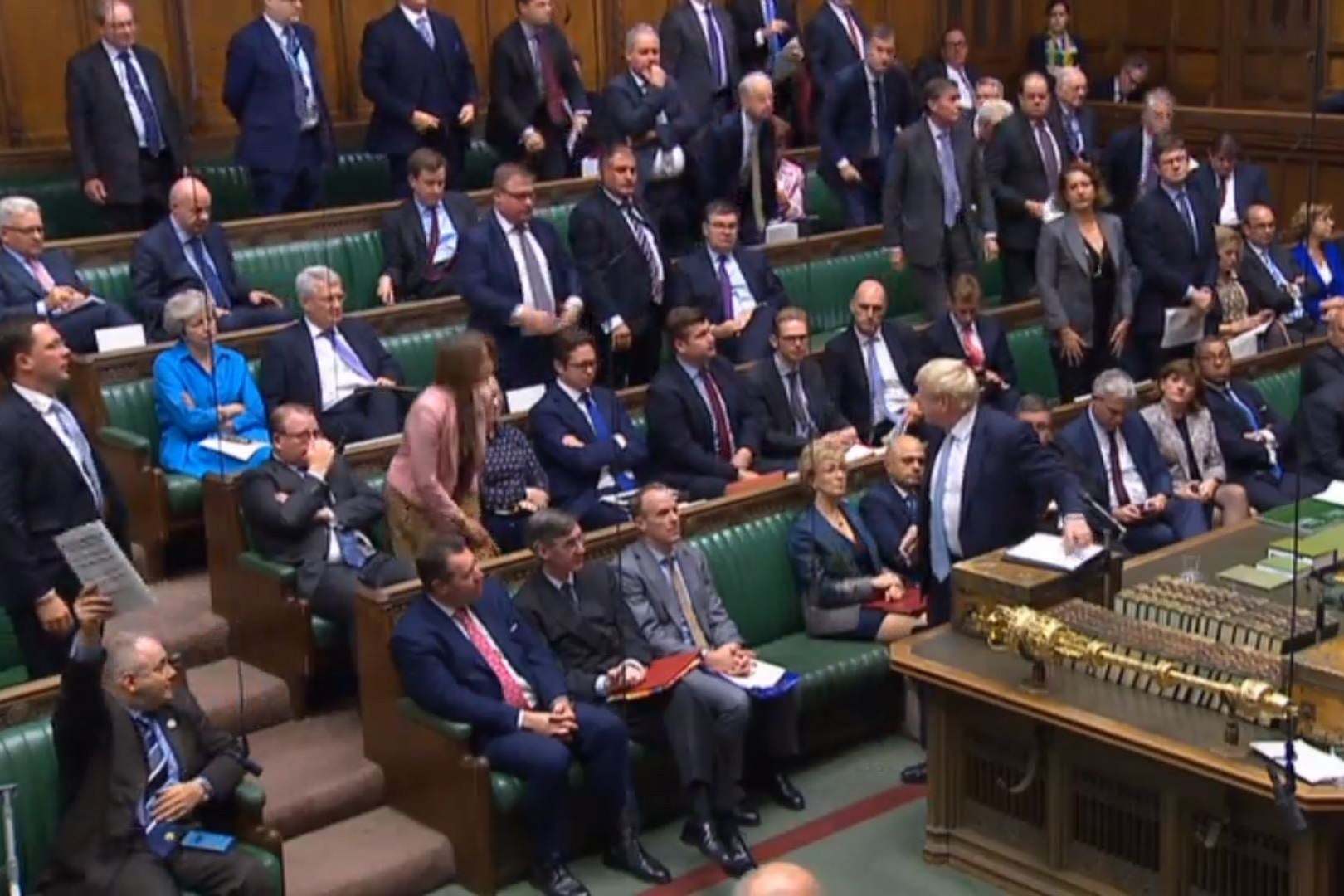How could MPs secure a second referendum?
Parliamentary supporters of a Final Say have an array of weapons at their disposal, writes Andrew Woodcock


Despite Boris Johnson’s success in agreeing a withdrawal deal with Jean-Claude Juncker and fellow EU leaders in Brussels, Brexit remains far from certain and a second referendum is still a possibility.
The most direct route to a referendum is one which supporters look unlikely to take, for tactical reasons.
This would be to attach an amendment to the “meaningful vote” motion tabled by the government for debate on Saturday, stating that parliament approves the deal only if it is confirmed by a public vote.
Final Say campaigners fear that an amendment of this type would fail on Saturday because it would not attract the necessary votes from former Tories now sitting as independent MPs.
Instead, they hope to mobilise MPs to vote Mr Johnson’s deal down in the Commons, as a clear demonstration that it cannot win parliamentary backing without a referendum attached.
Under the terms of the so-called Benn Act passed by parliament last month, if Mr Johnson’s motion is defeated, he must by the end of the day request an extension to Brexit negotiations.
Despite Mr Juncker’s claim on Thursday that there is no room for further “prolongation” of talks, it is highly likely that the leaders of the remaining 27 EU nations would approve an extension of several months – particularly if there is the prospect of a referendum or general election.
If the PM’s motion fails on Saturday, supporters of a referendum hope to force an immediate vote in the Commons on a provision to require a confirmatory public vote on any future change in the relationship between the UK and EU.
The proposal has been tabled by Labour MPs Peter Kyle and Phil Wilson as an amendment to a second government motion – to be debated only if Mr Johnson’s deal falls – asking MPs to vote for a no-deal Brexit. The “Kyle/Wilson compromise” would strike out the no-deal option and instal in its place parliamentary backing for a referendum.
It is not yet clear whether the government will move the no-deal motion or whether the Kyle/Wilson amendment will be called for a vote. Even if it is called and succeeds, it will not be legally binding on the government.
The next weapon of choice is likely to be an emergency motion under Standing Order 24 (SO24) next week, seeking to take control of parliamentary time on the following day.
If successful, referendum backers would use the time to rerun the meaningful vote on Mr Johnson’s deal, this time with a provision for a Final Say vote embedded in the motion.
Victory in such a vote is far from guaranteed, but around 15 former Tories who want a deal are understood to be willing to back a referendum under these circumstances – provided that the Johnson plan has already been defeated in the Commons.
Even if this scheme works, the fight for a referendum is not over. The motion would again not be legally binding, though it would amount to a highly influential marker of MPs’ will. And because of the public spending involved, plans for any national vote must be backed by a “money resolution”, which can only be moved by a government minister. And ministerial cooperation would also be required to pass legislation governing the administration of a public vote.
An alternative favoured by some MPs would be to table the final version of Theresa May’s deal – including workplace and environmental safeguards agreed in cross-party talks with Jeremy Corbyn this spring – with provision for a referendum attached.
Any referendum motion would be crafted to ensure that Brexit is either implemented or revoked immediately after votes are counted, in order to dispel concerns of the UK being trapped in a never-ending cycle of negotiations and votes.
Even if Mr Johnson’s deal wins parliament’s backing on Saturday, this does not kill off hope of a second referendum.

The withdrawal agreement must be ratified by both the Westminster and European parliaments before coming into effect at 11pm on 31 October.
At Westminster, this would be achieved by a Withdrawal Agreement Bill to be introduced on Monday and rushed through all its stages in both Houses of Parliament at breakneck speed, with MPs expected to be asked to sit for extended hours to get it done.
At any point during this process, an amendment to the WAB could be tabled which – if successful – would create a legal requirement for a referendum to be held to confirm voters’ support for Brexit before withdrawal occurs. If peers back a referendum motion, there could be a showdown between the two houses, with the bill bouncing back and forth in a test of nerves known as “parliamentary ping-pong”.
If Mr Johnson is forced to apply for an extension – either because his deal is voted down or if MPs pass an amendment tabled by Oliver Letwin to defer Commons approval until the WAB becomes law – this would open up another potential route to a referendum.
Mr Corbyn has said that once a no-deal Brexit has been definitively ruled out, Labour will table a motion of no confidence in the government to unseat Mr Johnson.
With no majority in the Commons, the PM would be vulnerable to defeat, triggering a 14-day period to try to establish an alternative government before an election is called.
In these circumstances, Corbyn insists that he should lead a caretaker government which would trigger an election once a Brexit extension has been secured. If Labour won that election, the party is committed to negotiating its own Brexit deal and putting it to a referendum within six months. In the unlikely event of the Liberal Democrats winning, they would immediately revoke the Article 50 letter notifying the EU of the UK’s intention to leave.
However, if it becomes apparent that no viable government can be formed with the Labour leader at its head, there remains a possibility of an alternative “national unity” PM being installed with a remit to legislate for a referendum and remain in office until it is concluded, probably in the summer of 2020.
If any of these schemes come to fruition, there would then of course be the small matter of fighting and winning a referendum battle which is all too likely to be as close as the 52-48 split seen in 2016.
Join our commenting forum
Join thought-provoking conversations, follow other Independent readers and see their replies
Comments